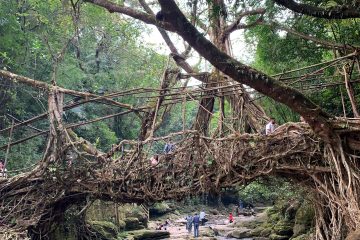A roundtable discussion at the conference of the International Society for the Study of Religion, Nature and Culture (ISSRNC), devoted to “Religion/Water/Climate: Changing Cultures and Landscapes,” University College Cork, Cork City, Ireland, 13-16 June 2019
In the midst of what is called the 6th extinction, and with pessimistic expectations when it comes to overpopulation and future life on the planet, being an environmentalist is different than 30 years ago. The problems of globalization and the “return” to nationalisms and parochialisms only exacerbate these problems. How do people engaged in environmental action cope with such a situation? This event provides a platform for discussing this topic with representatives from various groups that are engaged in environmental activities and/or who take seriously the multiple critiques of critical theories. While people may share common goals, there can still be clashing values when it comes to expectation, interpretation, and action. In a roundtable conversation, followed by an open discussion with the audience, we want to hear from activists, artists, and scholars about how they respond to the accelerating loss of species and the ecological disaster that we’re in.
This event will be in the format of a roundtable discussion. After a brief introduction by the conveners, panelists will have the chance to introduce themselves in a way relevant to the conversation for 5 minutes, which will be followed by a discussion among the panelists. After this, the discussion is opened to the floor. The idea is to have a free-flowing discussion (from point to counterpoint) about the topic at hand rather than to come with fully prepared thoughts. Furthermore, the format is meant to level the playing field between academics and/or activists, the academy and the public, and between disciplines. The “on stage” conversation partners are meant to be catalysts for a conversation that will open up to the entire room. Due to the “great divide” between “the academy” and “the wider public” and to disciplinary silos, universities and academic settings are ill-prepared to think with the rest of the planetary community about the complex, “wicked” problems the planet is facing today. Furthermore, activists and academics (though many of us are both and see teaching as a form of activism), often speak past one another in terms of what might be done to address environmental and social problems. In order to develop a multi-faceted conversation that might lead to unforeseen possibilities we need all of these voices at the table.
The panelists will begin by addressing the following guiding questions, followed by an open conversation with all those present.
- What were the most important events that triggered your environmentally minded thinking?
- How do you deal personally with ecological despair?
- What roles do you think scholars, various activists, artists, journalists and/or other stakeholders can play in thinking about the formation of a planetary community?
- What are some alternatives to neo-liberal globalization as usual vs. a return to some sort of nationalism or protectionism?
- How do we do activism amidst such ambiguity and change?
Panelists
- Whitney A. Bauman, Florida International University; Counterpoint (counterpointknowledge.org)
- Kocku von Stuckrad, University of Groningen; Counterpoint (counterpointknowledge.org)
- Marion Grau, Norwegian School of Theology; Artic Landscapes, Climate Change, and Theology
- Susannah Crockford, University of Gent; ERC project on “Narrating the Mesh: Ecology and the Non-Human in Contemporary Fiction and Oral Storytelling (NARMESH)”
- Lorna Gold, Trócaire (www.trocaire.org) and Maynooth University
- Jacob Erickson, Trinity College, Dublin; Global Warming and Theology
More information and registration
Please see the conference website.



0 Comments